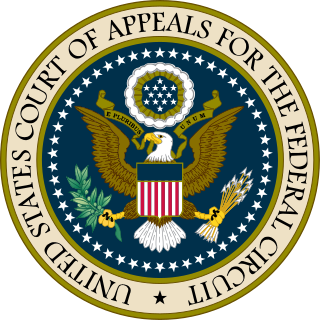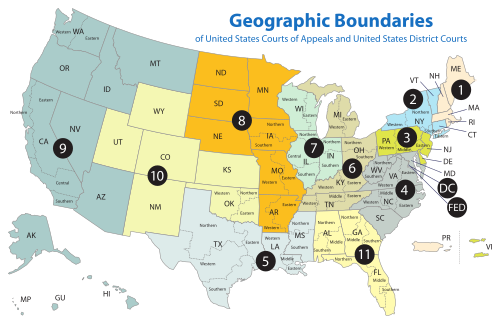Jurisdiction is the legal term for the legal authority granted to a legal entity to enact justice. In federations like the United States, the concept of jurisdiction applies at multiple levels.

Politics of the United States Virgin Islands takes place in a framework of a presidential representative democratic dependency, whereby the Governor is the head of the territory's government, and of a multi-party system. United States Virgin Islands are an unincorporated and organized territory of the United States, administered by the Office of Insular Affairs of the United States Department of the Interior. Executive power is exercised by the local government of the Virgin Islands. The judiciary is independent of the executive and the legislature.
Universal jurisdiction is a legal principle that allows states or international organizations to claim criminal jurisdiction over an accused person regardless of where the alleged crime was committed, and regardless of the accused's nationality, country of residence, or any other relation to the prosecuting entity. Crimes prosecuted under universal jurisdiction are considered crimes against all, too serious to tolerate jurisdictional arbitrage. The concept of universal jurisdiction is therefore closely linked to the idea that some international norms are erga omnes, or owed to the entire world community, as well as to the concept of jus cogens – that certain international law obligations are binding on all states.

In international law, extraterritoriality is the state of being exempted from the jurisdiction of local law, usually as the result of diplomatic negotiations.
Extraterritorial jurisdiction (ETJ) is the legal ability of a government to exercise authority beyond its normal boundaries.

The United States Court of Appeals for the Armed Forces is an Article I court that exercises worldwide appellate jurisdiction over members of the United States Armed Forces on active duty and other persons subject to the Uniform Code of Military Justice. The court is composed of five civilian judges appointed for 15-year terms by the president of the United States with the advice and consent of the United States Senate. The court reviews decisions from the intermediate appellate courts of the services: the Army Court of Criminal Appeals, the Navy-Marine Corps Court of Criminal Appeals, the Coast Guard Court of Criminal Appeals, and the Air Force Court of Criminal Appeals.

The United States Court of Appeals for the Federal Circuit is one of the 13 United States courts of appeals. It has special appellate jurisdiction over certain categories of specialized cases in the U.S. federal court system. Specifically, it has exclusive appellate jurisdiction over all U.S. federal cases involving patents, trademark registrations, government contracts, veterans' benefits, public safety officers' benefits, federal employees' benefits, and various other types of cases. The Federal Circuit has no jurisdiction over criminal, bankruptcy, immigration, or U.S. state law cases. It is headquartered at the Howard T. Markey National Courts Building in Washington, DC.

The Shanghai International Settlement originated from the merger in the year 1863 of the British and American enclaves in Shanghai, in which British and American citizens would enjoy extraterritoriality and consular jurisdiction under the terms of unequal treaties agreed by both parties. These treaties were abrogated in 1943.

Filártiga v. Peña-Irala, 630 F.2d 876, was a landmark case in United States and international law. It set the precedent for United States federal courts to punish non-American citizens for tortious acts committed outside the United States that were in violation of public international law or any treaties to which the United States is a party. It thus extends the jurisdiction of United States courts to tortious acts committed around the world. The case was decided by a panel of judges from the United States Court of Appeals for the Second Circuit consisting of judges Wilfred Feinberg, Irving Kaufman, and Amalya Lyle Kearse.

Britain had a functioning consular service in Japan from 1859 after the signing of the 1858 Anglo-Japanese Treaty of Amity and Commerce between James Bruce, 8th Earl of Elgin and the Tokugawa Shogunate until 1941 when Japan invaded the British colonial empire and declared war on the United Kingdom.
The Court of Claims was a federal court that heard claims against the United States government. It was established in 1855, renamed in 1948 to the United States Court of Claims, and abolished in 1982. Then, its jurisdiction was assumed by the newly created United States Court of Appeals for the Federal Circuit and United States Claims Court, which was later renamed the Court of Federal Claims.

In United States law, a federal enclave is a parcel of federal property within a state that is under the "Special Maritime and Territorial Jurisdiction of the United States". While these enclaves, which are used for all the many Federal governmental purposes, such as post offices, arsenals, dams; road; etc., usually are owned by the Government, the United States in many cases has received similar jurisdictional authority over privately owned properties which it leases, or privately owned and occupied properties which are located within the exterior boundaries of a large area as to which a State has ceded jurisdiction to the United States.

Lebbeus Redman Wilfley was an American attorney who served as Attorney General of the Philippines and as a judge of the United States Court for China. He is also known for his investigation into the Torreón massacre.
Glidden Co. v. Zdanok, 370 U.S. 530 (1962), is a United States Supreme Court case in which the Court held that judges of the Court of Claims and the Court of Customs and Patent Appeals were judges created under Article III of the Constitution. As such, it was permissible for the Chief Justice of the United States under 28 U.S.C. § 293(a) to designate judges from the Court of Claims and the Court of Customs and Patent Appeals to serve on district courts and courts of appeals.

The British Supreme Court for China was a court established in the Shanghai International Settlement to try cases against British subjects in China, Japan and Korea under the principles of extraterritoriality.

Charles Sumner Lobingier was an American jurist who served as a judge of the Philippine Court of First Instance from 1904 to 1914 and as Judge of the United States Court for China in Shanghai from 1914 to 1924. He was also the author of a number of books on international and comparative law.
Washington v. Confederated Bands and Tribes of the Yakima Indian Nation, 439 U.S. 463 (1979), was a case in which the Supreme Court of the United States held that the State of Washington's imposition of partial jurisdiction over certain actions on an Indian reservation, when not requested by the tribe, was valid under Public Law 280.
The British Court for Japan was a court established in Yokohama in 1879 to try cases against British subjects in Japan, under the principles of extraterritoriality. The court also heard appeals from British consular courts in Japan. Appeals from the British Court for Japan lay to the British Supreme Court for China and Japan based in the Shanghai International Settlement.
The Treaty between the United States and China for the Relinquishment of Extraterritorial Rights in China was a bilateral treaty signed by the United States and the Republic of China on January 11, 1943. The formal name of the treaty was Treaty Between the United States of America and the Republic of China for the Relinquishment of Extraterritorial Rights in China and the Regulation of Related Matters. It became effective on May 20, 1943, following the mutual exchange of ratifications pursuant to Article VIII.
Consular courts were law courts established by foreign powers in countries where they had extraterritorial rights. They were presided over by consular officers.







![The Development Building [zh] on Fuzhou Road. The court was located on the 6th floor of this building from 1936 to 1941. Development Building Shanghai.jpg](http://upload.wikimedia.org/wikipedia/commons/thumb/3/3b/Development_Building_Shanghai.jpg/220px-Development_Building_Shanghai.jpg)






















